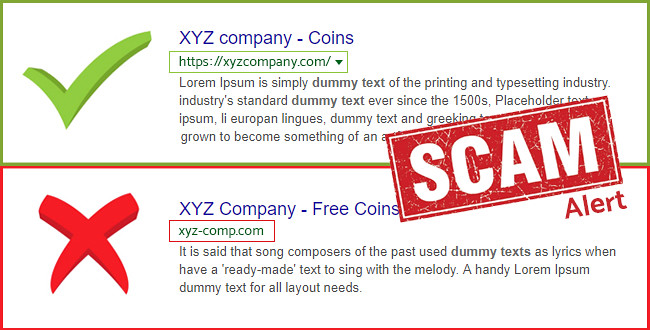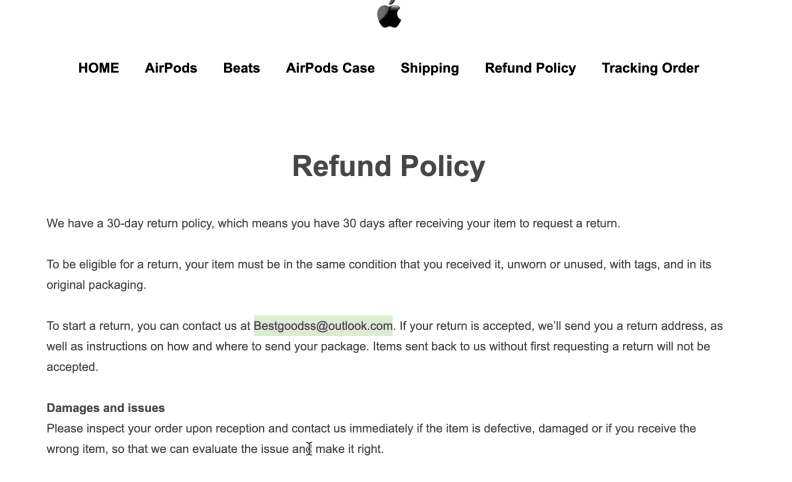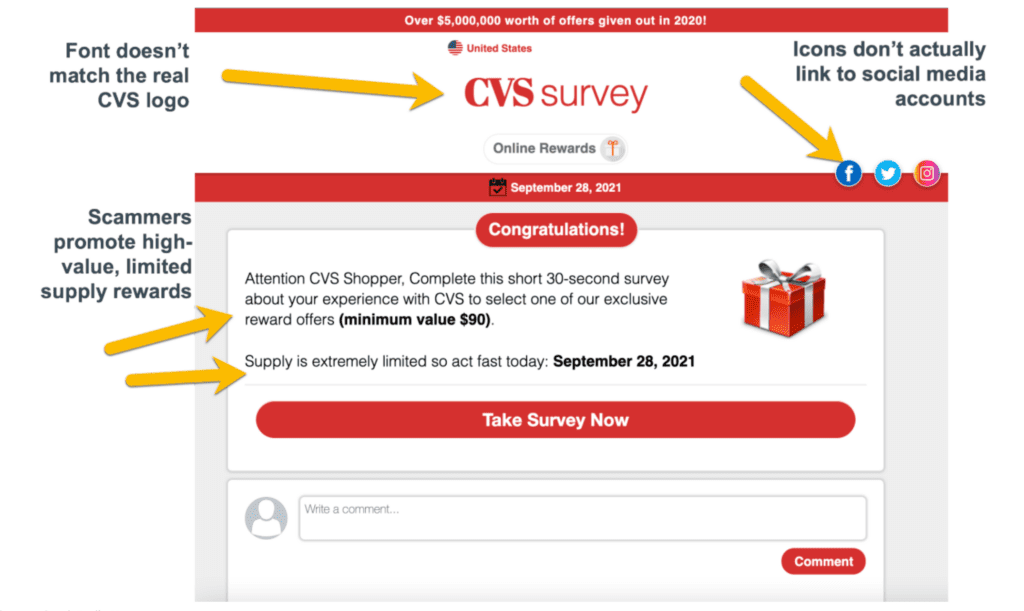New + updated
The 12 Best Snowboard Brands of 2024
March 4th
Did you know that by 2025, online shopping revenue in the U.S. will exceed 1.3 trillion dollars? Phew – that’s a lot of money.
While physical sellers have taken hits to their income in the pandemic, online sellers have made a killing. However, when you shop online, not all transactions are secure and neither are all websites legit.
The guide ahead will help you spot online scams and empower you as a consumer to avoid them!
So, What Exactly Is An Online Shopping Scam?
The typical shopping scam starts with a fake website, mobile app or social media ad.
These fake online stores are virtually identical to trusted retailers with familiar logos and slogans. They also have a URL that’s easily mistaken for the real thing!
What Are the Most Common Online Shopping Scams?
The culture of online shopping is in hyper-drive and it shows no signs of slowing down. So, the best way forward is to become aware and proceed with caution when shopping online.
Broadly speaking, there are 3 major kinds of online shopping scams that you need to be wary of:
- Fake Promotions of Gift Cards: You should be wary of scammers who use fake promotions to steal from you. They’ll likely ask for in-depth banking information and offer you deals at steep discounts.
- Suspicious Links in Emails: Scammers are using dangerous links in fake shopping emails to trick users into giving away personal information. These emails are used by online thieves for identity theft.
- Fake Coupon Websites: Lots of fake online shopping websites will claim to offer you free coupons once you’ve filled out a “quick survey.” This may seem harmless. However, the survey landing pages are often designed to gather personal information from you or install malware on your device.
Related: 7 Practical Ways To Save Money As A Student
6 Ways to Protect Yourself From Fake Online Stores
Only 15% of Americans could correctly answer at least 7 of 10 true or false questions about safe shopping practices. You don’t need to stop shopping online, but you should always take precautions to make sure you get what you pay for.
1. Beware of Websites that Ask for Sensitive Information
When buying items online, don’t pay by wire transfer, money order or gift cards. These types of payments are likely scams. Unlike with credit cards or reputable e-pay services, there’s little chance of getting your money back if you get scammed.
As a rule of thumb, remember that legit sellers usually only need your card number and billing information and shipping details – nothing more.
2. Browse Brands with a Digital Shopping Assistant
Internet security firm Norton says to be on guard if discounts exceed 55%. A cart collector like Carrot has affiliate partnerships with major brands including the likes of NYX and Aeropostale, among many more.

This ensures your cyber safety by only taking you to website landing pages that have been verified by the sellers themselves.
3. Learn How to Spot Fake Websites
While fake stores do their best to seem legit, there are a few telltale signs that give them away:
- Make sure that the seller’s website URL code is real. Fake stores use long URLs that include extraneous words or characters and unusual domains. For example, .bargain or .app instead of .com or .net.



- Fake stores quite often have limited or suspicious contact options. For example, the seller’s website may only have a fill-in contact form, or the customer-service email is a Yahoo or Gmail account. For example, notice the oddly shaped “Apple” logo and the bogus email address?



- Improper grammar, misspellings, and poor sentence structure indicate a lack of care or concern for the customer. A trusted retailer takes care with online presentation, including linking properly to third party websites. A fake store might have a similar looking logo, but not the exact same one.



4. Carefully Read Negative Seller Reviews
Often on fake online shopping websites, fraudsters will post positive reviews on the website, either copied from honest sites or created by scammers.
Therefore, always carefully read the negative reviews first. These are more likely to be real and can help identify online shopping scams. A trusted resource to check reviews is Better Business Bureau (BBB). The organization helps find consumers’ businesses, brands, and charities they can trust.
Related: How To Spot Fake Product Reviews?
5. Review the Seller’s Contact Us and About Us Pages
Another red flag when shopping online is when you come across a seller’s website with little to no information on the “About Us” and/or the “Contact Us” page.
- The “About Us” section is important because it outlines the brand’s mission, when they launched, and what they promise to deliver. If it’s missing, or rife with grammatical and spelling errors, it’s probably a fake store.
- Similarly, check the “Contact Us” page on the website to make sure that the phone numbers and addresses are genuine. You can do a quick Google search to see if the information matches!
6. Keep a Digital Shopping Log
While we’re used to automated order confirmation emails and updates, it’s always best to keep your own shopping log:
- Make a note of the website name and URL.
- Take a screenshot of the item ordered, in case the site disappears or a falsely advertised item arrives.
- Review the total cost of what you’re paying for including shipping, handling, delivery, taxes, or other fees. Also check the seller’s return and refund policies.
- Once your items ships, copy the tracking number and monitor the item’s journey through the courier service’s website.
Related: 5 Tips on How to Organize Grocery Lists by Monica Geller
I’ve Been Scammed! What Should I Do?
We know it’s frustrating when you realize you’ve been a victim of an online shopping scam. However, take heart – there are legal measures in place to file complaints and report frauds for your future cyber safety. By reporting fake online stores, you’ll also be helping other shoppers steer clear of scammers!
Here’s where you can report fake stores:
- The Federal Trade Commission at ReportFraud.ftc.gov.
- Your state attorney general.
- Your state’s consumer protection agency.
In Summary
You can protect yourself from online shopping scams by paying attention to the details that often go overlooked. Always make it a priority to check the URL, contact information, and seller reviews to suss out fake online stores. This is why at Carrot, our mission is to make you – the consumer, in charge of your money and privacy.
Install the Carrot browser extension today and shop online safely!








